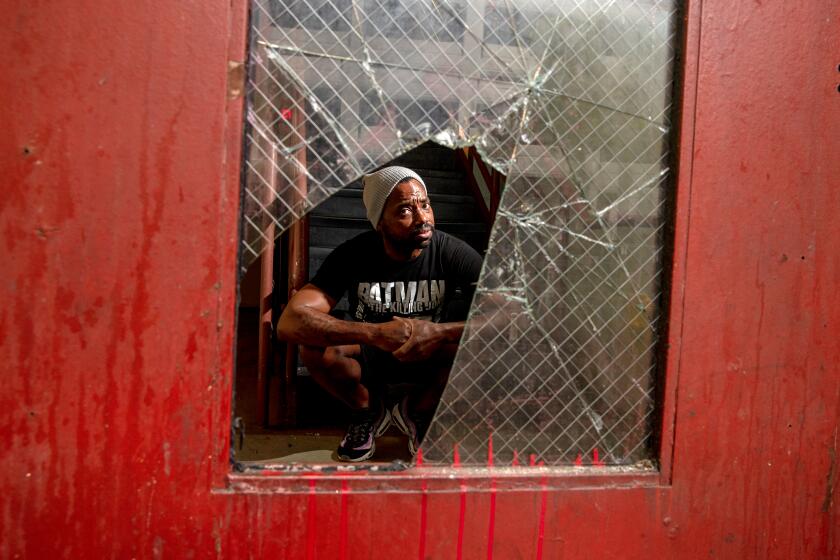Overdose deaths at Skid Row Housing Trust building hint at wider problem
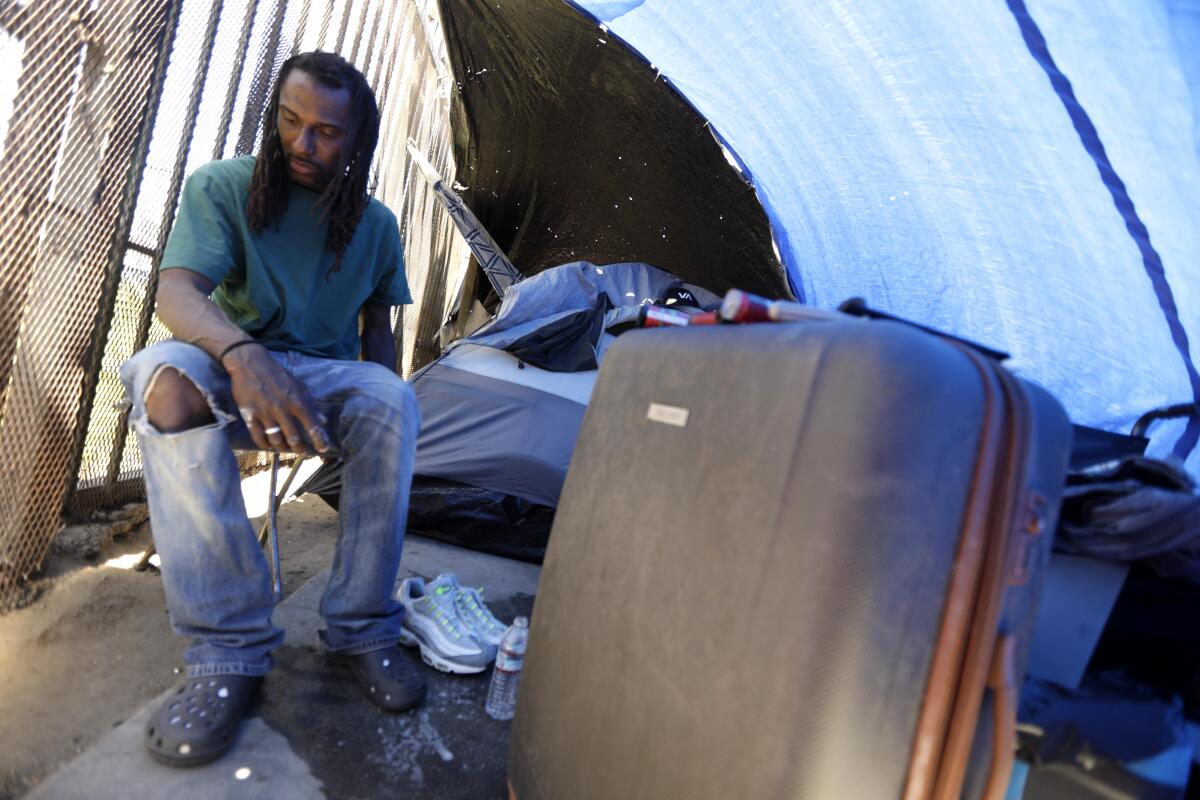
- Share via
Cecilia Montoya saw body bags being pushed out of her skid row apartment building on gurneys after three people were found dead of drug overdoses, possibly related to fentanyl, on Wednesday.
The sight was disturbing but not shocking to Montoya.
On the sixth floor, where the deaths of the woman and two men occurred, she often sees people using drugs, both in hallways and in apartments.
Montoya said that since she moved there about a year ago, three other people have died of overdoses at 649 Lofts, which provides housing to underprivileged people and is owned by the nonprofit Skid Row Housing Trust, whose 29 residential buildings have fallen into extreme disrepair.
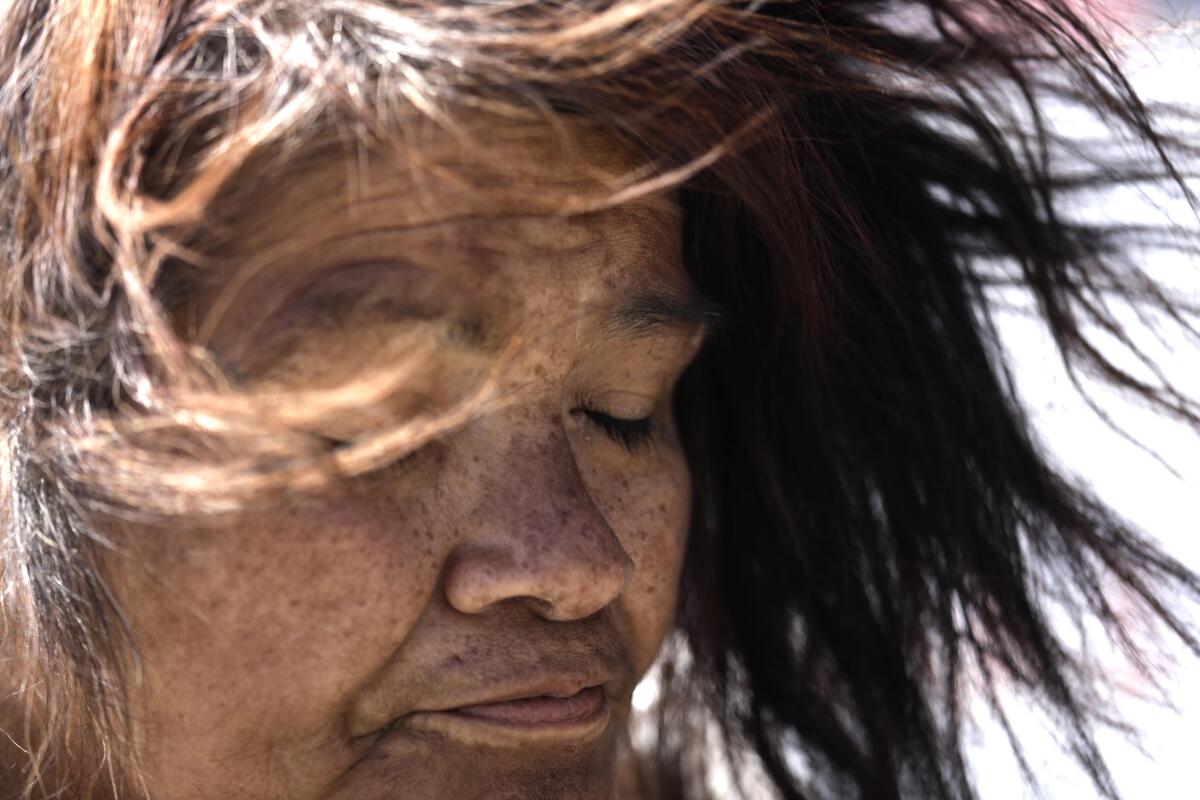
“I had never seen a row of body bags like that, other than on the TV,” said Montoya, 52, a recovering meth addict.
On Friday, a judge will consider a request from the Los Angeles city attorney that the trust’s properties be taken over by a court-appointed receiver.
In court earlier this week, Deputy City Atty. Steven Son described the situation as a “humanitarian emergency,” adding that conditions have deteriorated in the buildings so much that there are “truly life safety issues.”
Los Angeles housing officials are planning to step in with immediate help to stabilize residential buildings that the financially strapped Skid Row Housing Trust is unable to maintain in habitable condition.
Opened in 2021 on Wall Street, 649 Lofts is one of the trust’s newest buildings, with 54 studio apartments. But it, too, has had serious problems.
A tenant with arthritis and nerve damage told The Times last month that she was trapped for several weeks on the fifth floor after the elevator broke down, and that intruders were common.
Montoya, who relies on a motorized scooter because she has lesions on her left foot, said the elevators haven’t been working for the last two weeks — a regular occurrence at the building.
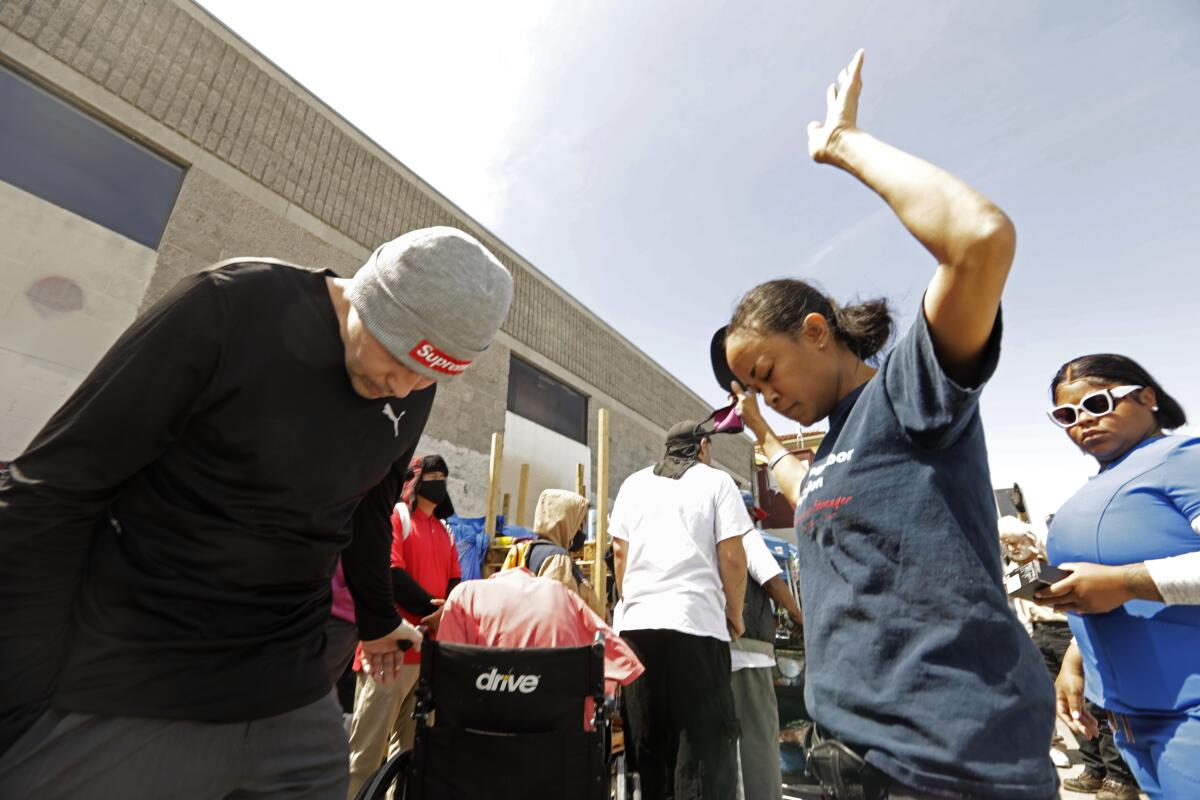
She has mostly stayed away from her seventh-floor apartment. When she does go up, she has to take the stairs while someone carries her scooter.
Sometimes, she avoids going to the methadone clinic because she’s afraid she won’t be able to return to her apartment.
People from the street make their way inside the building through an unlocked emergency door, she said.
On Thursday, the door remained unlocked but she said management had at least increased security.
The Skid Row Housing Trust was a model for nonprofits housing homeless people in Los Angeles. Behind the scenes, it was imploding — leaving tenants in squalor.
“It’s unfortunate it took these deaths to make that happen,” she said.
Montoya said people use drugs on the fourth floor too. When people are high, they destroy lightbulbs and damage the property, she said. Once, someone tried to break into her apartment.
A spokesman with Skid Row Housing Trust could not comment immediately.
Two blocks away, near 7th and Crocker streets, skid row residents said overdose deaths have become so common that they are nothing out of the ordinary.
Aimee Crouse of Love My Neighbor Foundation said she arrived Thursday morning to help distribute meals to the homeless and noticed that coroner’s officials were investigating a death across the street.
They told her the death was possibly related to a fentanyl overdose.
Cleveland Anderson, 62, said the man who died was in his 30s and known as “Cartoon.”
“He was a funny guy,” Anderson said. “He was a good kid.”
According to Anderson, the man was in pain and screaming for help the night before. A woman in a nearby tent called paramedics, but they refused to go inside the man’s tent and left without helping him, Anderson said.
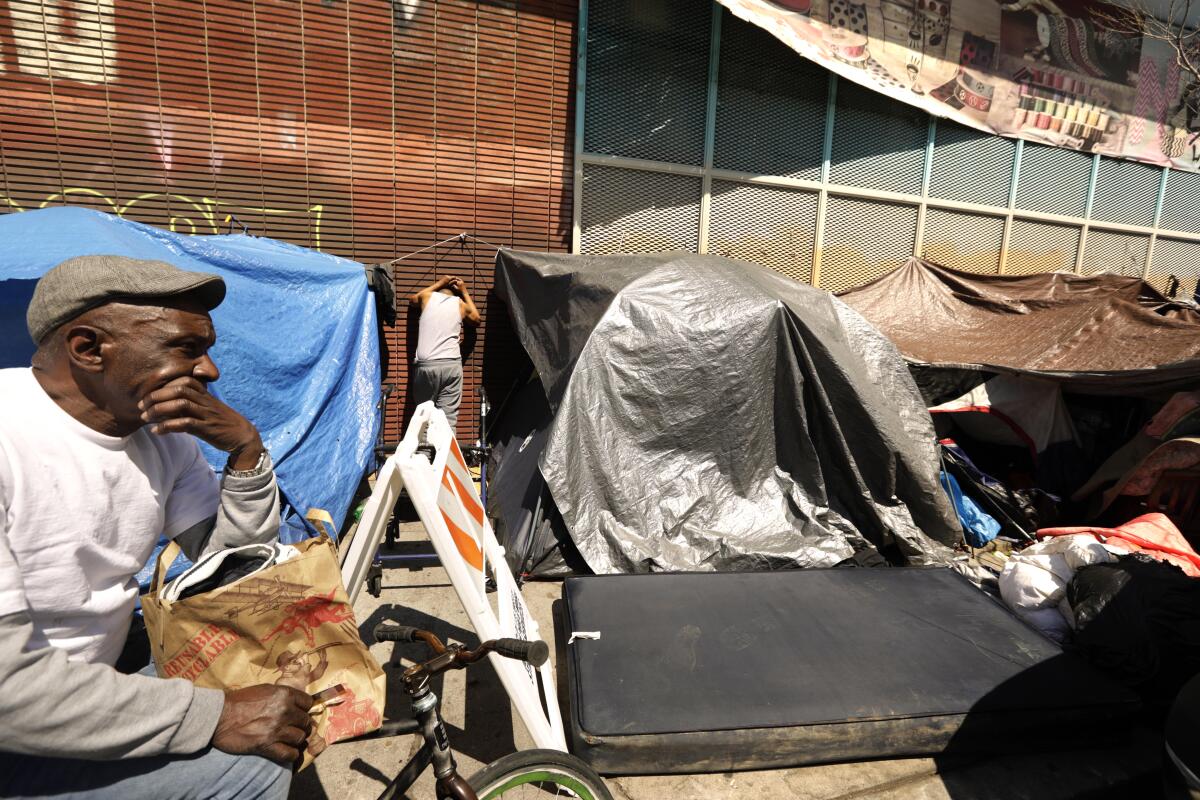
Hours later, on Thursday morning, the man’s brother, who lived in a tent next to him, checked on him and discovered he wasn’t breathing, Anderson said. The brother asked someone for Narcan, the nasal spray that helps reverse an opioid overdose, but it had no effect.
“This happened to a good kid,” Anderson said, gazing at the ground. “I feel depressed. I can’t believe this happened.”
Carl Zephyr, a longtime skid row resident, said that a month ago, he noticed a friend staggering before collapsing on the sidewalk. Zephyr rushed over and began CPR but couldn’t save his friend.
“Something’s got to be done about this fentanyl,” Zephyr said. “It’s a cold killer.”
Nearby, Steven Archuleta pushed his friend, Hector Figueroa, 47, in a wheelchair.
Both men live at the Simone Hotel Apartments, where people died of fentanyl overdoses last month, they said.
“I had one die on my floor,” said Archuleta, 37.
He said two people died on Figueroa’s floor.
“It’s become the norm here,” Archuleta said. “Something’s got to be done about this fentanyl, because it’s worse than COVID.”
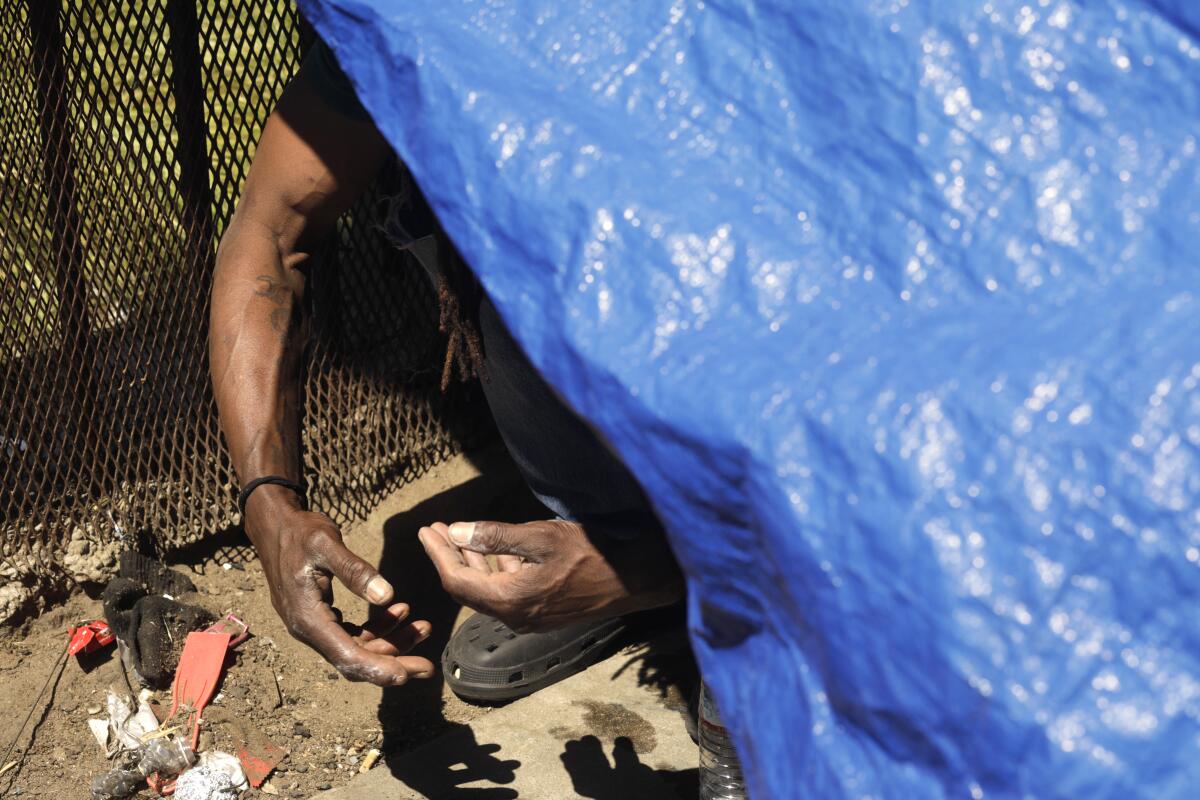
Nearby in a blue tent, Wayne Cowings Jr., washed a pair of white sneakers. Cowings hadn’t heard about the three deaths at 649 Lofts. But he knows about fentanyl addiction.
He said he smokes drugs laced with fentanyl and has overdosed several times. The withdrawals are painful.
“I get body chills, my bones feel like weights and my equilibrium is all out of place,” he said. “But once you take a hit, it stabilizes you. The drug hooks you.”
Cowings said that sometimes after passing out, he has regained consciousness to find that he has crossed a fence into someone else’s yard.
He wants to stop using drugs and has enrolled in a rehab program that starts Friday.
More to Read
Sign up for Essential California
The most important California stories and recommendations in your inbox every morning.
You may occasionally receive promotional content from the Los Angeles Times.

